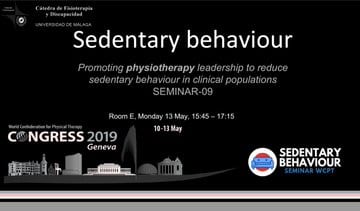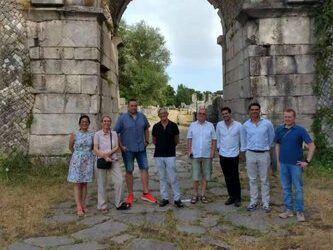About
About iGame
Fundamental challenges faced with gamified eHealth interventions include the high development cost for digital SMEs in product innovation and the lack of clinical evaluation methods for its effectiveness assessment. Therefore, iGame addresses the challenges through coordinated actions with a number of objectives.
Objectives
1. To develop an innovative R&D programme between industry and academia focusing on delivering solutions to address the development process, cost and efficacy of gamified eHealth products in terms of productivity and effectiveness.
2. To develop a strong and sustainable model of collaboration with the creative digital and eHealth industries to develop innovation capacities in SMEs and healthcare sectors focusing on gamified eHealth products.
Work Packages
WP1: Management and Coordination (BU Leads)
BU will manage the project on time and the budget and monitor data management and ethics. The lead partner will manage and coordinate communication and interaction between participants and provide efficient support in terms of financial and human resources management and link the project to the EU Commission. All partners must optimise workflows between project partners using a project management tool to ensure the integration of all activities for high-quality deliverables.
WP2: Mapping BCTs ( Behavioural Change Techniques) in Game Design Concept (UMA Leads)
Researchers will analyse the evidence-based BCTs taxonomy, focusing on the actual use of games in eHealth and developing multi-dimensional user retention strategies. While using the survey data as the basis to build knowledge for eHealth gamification, a focus group discussion followed by a quantitative online questionnaire will be sent to a large sample of patients. The impact of individual characteristics, taking into account the overall behaviour of patients, will provide knowledge for constructing effective gamification methods and related support systems.
WP3: Developing Game Design Toolkits (ITware Leads)
Researchers will develop AI based procedural algorithm to generate game elements from user-generated social games and to apply BCTs within different game design elements, some of which will be mapped to high-level gaming attributes (player retention strategies). Other elements will be associated with the information process and data analytics for target health benefits measured by validated constructs and independent variables. The toolkits will include fundamental structures and mechanics needed in eHealth gamification, thereby enabling efficient game production via advanced algorithms and methods.
WP4: Developing an Integrated ICT Platform (ArtHaus Leads)
Researchers will develop a cloud-based ICT infrastructure to support online data management, a platform with high-level functions to provide informed choices to meet targeted eHealth intervention (preferred game genre, environmental and time constraints, game mechanics, player community and recommendations) through data mining and eDiary of behaviour management, informing people for better understand the impact of lifestyle and behaviours.
WP5: Developing Clinical Validation Methodology (SAS Leads)
Researchers will assess the proof of concept games by evaluating the participating capacity about eHealth gamification of BCTs via advanced game technology implemented in the personal lifestyle context. The production of clinical evaluation methodology and guideline will inform clinical practitioners, policy makers and SMEs in the digital technology services. Individual and group activities will be monitored through online reporting, semi-structured interviews to ascertain and validate the effectiveness of using eHealth gamification. Qualitative accounts of the effects of the application via short online forms, and factors affecting usage, as well as self-reported acceptance of the application measured in a questionnaire will be analysed.
WP6: Dissemination, Market Exploitation and Impact Evidence (BU Leads)
All partners involved in this multi/inter-disciplinary and inter-sectorial project will actively generate spill-over effects at EU level to support a long-term strategic co-creation partnership in developing cutting-edge eHealth and mHealth innovations. The project consortium with highly qualified complementary expertise will generate synergistic efforts for R&D innovations targeting new products and services. A long-term collaboration and mechanism for research and commercial exploitation of the project results have been planned.
Latest News
Motion Sensor Ready for Testing
SensorID, H2020 iGame project partner has designed and completed the prototyping process of the motion sensor for use in...
Presentation at WCPT 2019
Professor Anot Cuesta-Vargas has made a presentation at the WCPT 2019 conference on a topic of "Promoting physiotherapy...
Face-to-Face Consortium Meeting in Campobasso, Italy
The second face-to-face consortium meeting has been held in project partner organisation SsesorID in Campobasso, Italy...



